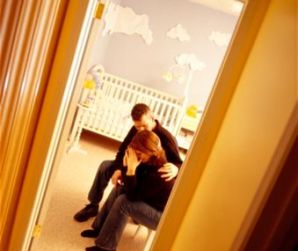Since a miscarriage itself is highly traumatic and discouraging, it is only natural that getting pregnant after miscarriage can also cause anxiety and doubt in a woman. Though a large majority of miscarriages occur due to unavoidable reasons; very often even unknown reasons, if a woman has undergone a miscarriage there are things she should keep in mind when she looks to get pregnant again.
Getting pregnant after miscarriage – How long to wait
The first question that occurs to anyone looking to get pregnant after a pregnancy loss is: how soon is it OK to get pregnant after this? After a miscarriage occurs, most women take 4 to 6 weeks to start menstruating again and for the hormones to stabilize.
 Physical recovery from the pregnancy is also something to be considered and the doctor is the best person to gauge when a woman is physically fit enough to get pregnant after a miscarriage.
Physical recovery from the pregnancy is also something to be considered and the doctor is the best person to gauge when a woman is physically fit enough to get pregnant after a miscarriage.
However ultimately the decision has to lie with the woman who has undergone the loss – is she mentally and emotionally ready and healed enough to contemplate another pregnancy? If not she should wait.
It is important to remember that most women go on to have a successful and safe pregnancy after suffering a miscarriage.
Precautions to take for getting pregnant after a miscarriage:
Try to detect the reason for the miscarriage
Though this is a difficult task in a lot of cases, if the cause for the miscarriage is known – whether it was a genetic reason, due to an underlying infection or medical condition, or due to structural and/or hormonal abnormalities, then these should obviously be corrected if possible.
Though there is no way to prevent chromosomal abnormalities (a common reason for miscarriages), certain tests will reveal if it was any chromosomal problem that caused the miscarriage.
If it was an infection in the reproductive tract, one can treat an infection that could have caused the miscarriage. Also if risk factors such as uncontrolled diabetes, high blood pressure, thyroid problems and so on are likely to have contributed to if not caused the miscarriage, they should be controlled before getting pregnant after miscarriage.
Obesity can make it difficult for a woman to conceive and may also increase chances of pregnancy complications. To it is best to try and get to a normal body weight before trying to get pregnant again.
Continue to live a healthy life
If you were exercising regularly and eating healthy before the pregnancy loss, continue to do so. Don’t smoke or drink, don’t indulge in any kind of substance abuse, keep caffeine consumption down to as low as possible.
Take your folic acid supplements regularly and don’t use hot tubs (or do anything to elevate the body temperature) to make sure that when conception does occur, you give your future baby the best chance at survival.
Lower stress levels
Getting pregnant after miscarriage can be highly stressful – you wonder if the trauma is likely to repeat itself, if you doing everything right and if you haven’t got pregnant in spite of trying, why this is so. So avoid and lower stress mindfully to give yourself the best chance of a healthy pregnancy.



